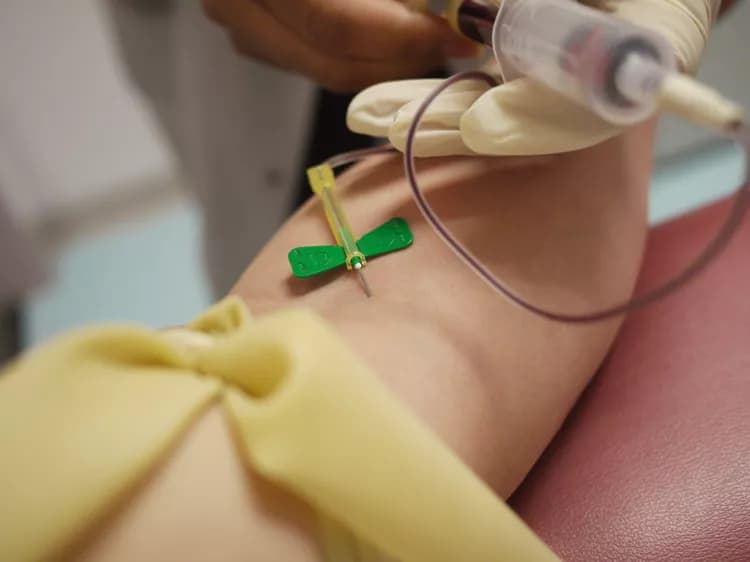
Can Height Increase Risk For Blood Clots In Veins?
The taller you are, the more likely you may be to develop blood clots in the veins, according to new research in the American Heart Association journal Circulation: Cardiovascular Genetics.
In a study of more than two million Swedish siblings, researchers found that the risk of venous thromboembolism -- a type of blood clot that starts in a vein -- was associated with height, with the lowest risk being in shorter participants.
They also found:
For men shorter than 5'3," the risk for venous thromboembolism dropped 65 percent when compared to the men 6'2" or taller. For women, shorter than 5'1" who were pregnant for the first time, the risk for venous thromboembolism dropped 69 percent, compared to women that were 6 feet or taller.
"Height is not something we can do anything about," said lead researcher Bengt Zöller, M.D., Ph.D., associate professor at Lund University and Malmö University Hospital in Malmö, Sweden. "However, the height in the population has increased, and continues increasing, which could be contributing to the fact that the incidence of thrombosis has increased."
The CDC estimates venous thromboembolism affects up to 600,000 Americans every year, making it the third leading cause of heart attack and stroke. The most common triggers are surgery, cancer, immobilization and hospitalization. In women, pregnancy and use of hormones like oral contraceptive or estrogen for menopause symptoms are also important triggers.
Zöller said gravity may influence the association between height and venous thromboembolism risk. "It could just be that because taller individuals have longer leg veins there is more surface area where problems can occur," Zöller said. "There is also more gravitational pressure in leg veins of taller persons that can increase the risk of blood flow slowing or temporarily stopping."
One caution is that researchers didn't have access to data for childhood and parent lifestyle factors such as smoking, diet and physical activity. In addition, the study consisted primarily of Swedish people and may not be translatable to the U.S. population. Although, researchers note, the Swedish population nowadays is as ethnically diverse as the U.S. population.
"I think we should start to include height in risk assessment just as overweight, although formal studies are needed to determine exactly how height interacts with inherited blood disorders and other conditions," Zöller said.
Materials provided by American Heart Association. Note: Content may be edited for style and length.
Disclaimer: DoveMed is not responsible for the accuracy of the adapted version of news releases posted to DoveMed by contributing universities and institutions.
References:
Bengt Zöller, Jianguang Ji, Jan Sundquist, Kristina Sundquist. Body Height and Incident Risk of Venous ThromboembolismCLINICAL PERSPECTIVE. Circulation: Cardiovascular Genetics. DOI: 10.1161/CIRCGENETICS.116.001651
Related Articles
Test Your Knowledge
Asked by users
Related Centers
Related Specialties
Related Physicians
Related Procedures
Related Resources
Join DoveHubs
and connect with fellow professionals

0 Comments
Please log in to post a comment.